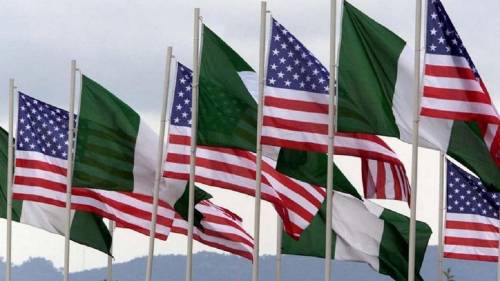
This is the last day of my first trip to Africa as the Assistant Secretary of State for African Affairs. I spent most of my 32-year career as an American diplomat on this continent, and I was fortunate to serve twice in Nigeria.
As they say, old friends are the best friends. I am truly excited to be back in Nigeria and to speak to you today about the enduring relationship between the United States and the countries of Africa, particularly Nigeria.
The world, most especially Africa, has changed dramatically from when I became a diplomat in 1978.
When I first set foot on the continent in 1978, there were no cell phones, no Internet, few television stations, and to call back to America required booking a call days ahead to reserve one of the few international lines.
Today, young Africans are as wired and plugged in as any of their global counterparts, and they aspire to the same goals – a quality education, a well-paying job, a good house, and something left over to help their parents.
Through modern technology, even people in the villages now know how much cassava or goats will sell for in the urban areas, so they can get better prices for their products.
And if they have the cell phone number of their relative now living in Kano, Abuja, or Lagos, they know how to reach them and remind them to send money home. In fact, all those advertisements by GLOmobile remind Nigerians that you truly have no excuse not to call your mother.
The United States deeply values its long-standing partnerships with African countries. Across the continent, we face challenges together, from fighting corruption and combating terrorism to helping African nations create healthier, better educated populations with greater opportunities for their citizens.
Through our programmes like AGOA, PEPFAR, Power Africa, Feed the Future, and the Young African Leaders Initiative, we have walked side by side with Africa for decades to open up the American market to African goods, to counter the scourge of HIV/AIDS, to bring electricity to rural areas, to help African nations become self-sufficient, and to empower the next generation of African leaders.
This trip has been a phenomenal opportunity to see the impressive impact of those partnerships.
It has also been a chance for me to highlight four key US policy priorities:
First, the United States promotes stronger trade and business ties between Africa and America.
To achieve this, African governments need to increase transparency and fairness in their respective commercial environments to attract more business.
Investors need a level-playing field, predictable policies, and a dispute resolution process that follows the rule of law — not who pays the highest bribe.
America remains the world leader in international brands and American technology and expertise are second to none.
And, American companies are eager to invest in Africa and they will bring technology, know-how and, above all, the desire to hire, train, and advance Africans into positions of responsibility. Sadly, as we all know, some other countries have not been willing to do this.
Second, we must harness the potential of Africa’s tremendous youth population to drive the continent’s economic growth and create real prosperity.
Both during my first career as a diplomat and my second career in academia as Vice Provost for International Affairs at Texas Tech University, I had numerous interactions with young Nigerians. They were some of the brightest and most talented students I have met anywhere.
The question to you is, “How do we harness that talent and entrepreneurial spirit of young Africans as a force for prosperity and stability?”
Third, it is critical that we strengthen our partnership to advance peace and security across the continent. We do this through our security and development partnerships with African governments as well as supporting regional mechanisms like ECOWAS.
We want to see Nigeria play a larger role in the region – to use its decades of experience in regional peacekeeping and the recent trend of peaceful democratic transitions to influence the broader region toward a similar path.
Fourth, I am here today to reinforce that America has an unwavering commitment to Africa. Our relationship has evolved over decades to one of cooperation, mutual respect, and transparency.
Perhaps, nowhere is the strength and breadth of the US-African partnership more evident than here in Nigeria. Nigeria has Africa’s largest population and economy. It is a diverse and vibrant democracy on the world’s fastest growing continent.
As Nigeria’s population becomes the third-largest in the world by 2050, our partnership will only deepen.
I believe that a strong Nigeria is the foundation for a strong continent.
As I focus my attention on increasing trade with and the US investment on the continent, Nigeria will be at the centre of this effort. Nigeria is the United States’ second-largest trading partner in Africa, with over $9bn in two-way goods trade in 2017. Hundreds of American companies already operate in Nigeria, and in 2017, US investment stood at $5.8bn.
Recently, Nigeria has taken steps to develop more predictable economic policies and a more transparent justice system. However, greater international investment will only come with continued reforms.
Nigeria has a wealth of smart, talented, and successful people. Take the story of Amal Hassan from Kano State, who is a Nigerian techno-preneur and Chief Executive Officer of Outsource Global.
To be concluded
Full text of the remarks delivered by Ambassador Tibor Nagy, US Assistant Secretary of State for African Affairs, during a public lecture at Baze University, Abuja on November 9, 2018
END

Be the first to comment